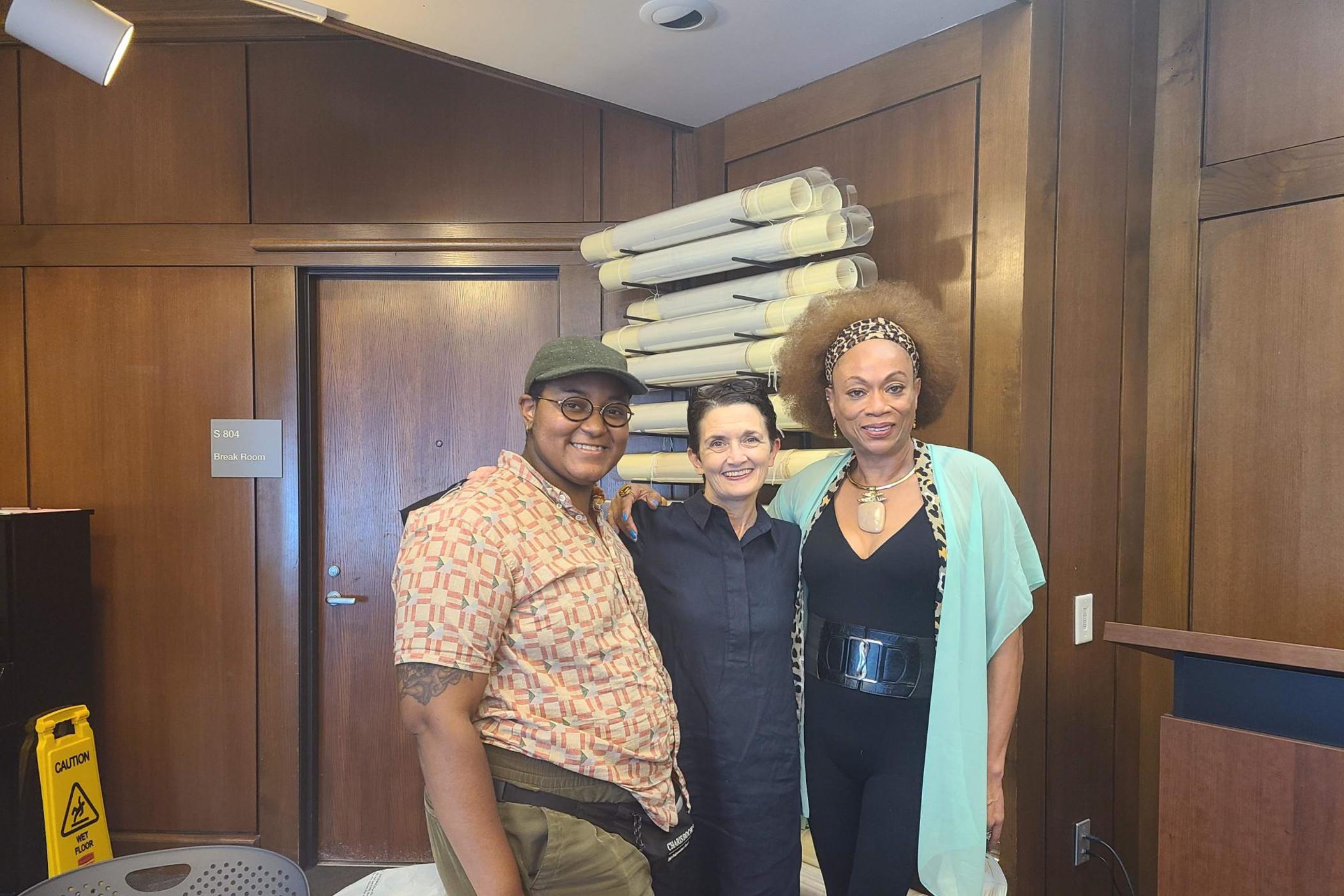Section Branding
Header Content
‘You’re not the first.’ Georgia State University project aims to preserve transgender history
Primary Content
Since 2021, volunteers with Georgia State University have been gathering and preserving the life stories of transgender people who live in or have had an impact on this state. The Georgia Transgender Oral History Project is a series of interviews conducted by trans volunteers and stored in the university archives.
Volunteers spoke about the process and importance of preserving trans history.
Eight stories above downtown Atlanta, in the Georgia State University Library, archivist Morna Gerard and Tracee McDaniel dig through McDaniel’s life. In front of them are several boxes full of newspaper clippings and awards from McDaniel’s life as a trans woman, including decades of activism.
She said it’s been a long time since she’s seen some of these items.
“I was an entertainer for over 20 years, and I'm retired now, but I still remember those days fondly,” McDaniels said.
Gerard will file all of McDaniel’s things as an official part of the library’s Gender and Sexuality archive, which is also home to the Transgender Oral History Project. McDaniel says she is more than happy to share.
“This project is an act of rebellion, an act of resistance against the system, politicians, religion, etc., etc.,” McDaniel said. “So I love being in this rebellious state. That's why I'm enjoying this process.”
But McDaniel said she isn’t just doing this work for her own pleasure. This is about the future and about saving lives.
“If a lot of the younger generation can be inspired by my story, by my path, then it's all worth it,” she said. “That's why I do what I do. And that's why I think it's important for us to leave our history and let others know that, no, you're not the first.”
Oral histories range in age and life experience from young college students to retired drag queens.
Gerard helped start the project in 2021. She said from the beginning she and the volunteers were clear they wanted to highlight joy in the trans community.
“We want to look at resiliency and community,” she said. “People do sometimes want to talk about trauma and we're very happy to talk to them about that. But that's not necessarily the sole focus of our project.”
Ashby Combahee says he needed an image of a joyful trans life as a child in Louisiana.
“Growing up as a queer child, I did not believe that I belonged in the South,” Combahee said. “The first thing I did when I grew up as an adult was leave the South. Doing that made me realize how Southern I am, how I relate to people. The slow pace of Southern living and the culture. I missed it deeply.”
Like McDaniel, Combahee has both shared his own story with the project and collected others.
“I think so much of queer history is censored as adult material,” he said. “However, we know that for any type of cultural building, any type of identity formation, you know, knowing your history from a young age helps give you a sense of belonging.”
And, Combahee said, he hopes these collected histories show young trans people they belong in the South, too.
The latest interviews for the Georgia Transgender Oral History Project will be accessible online within a year.


